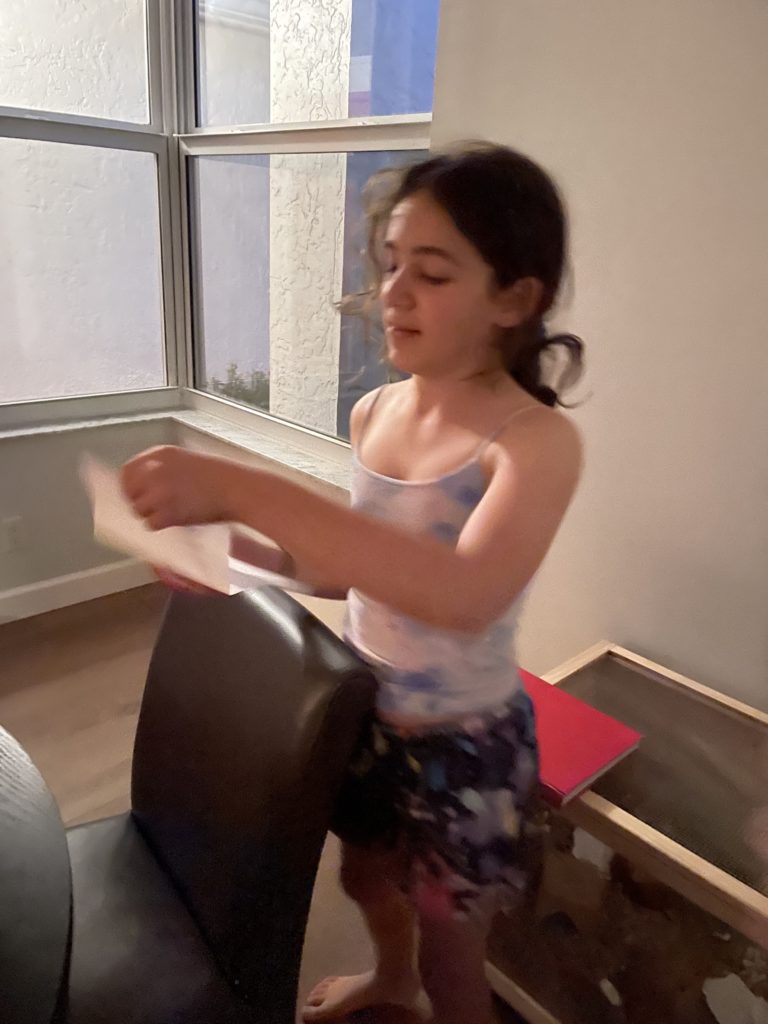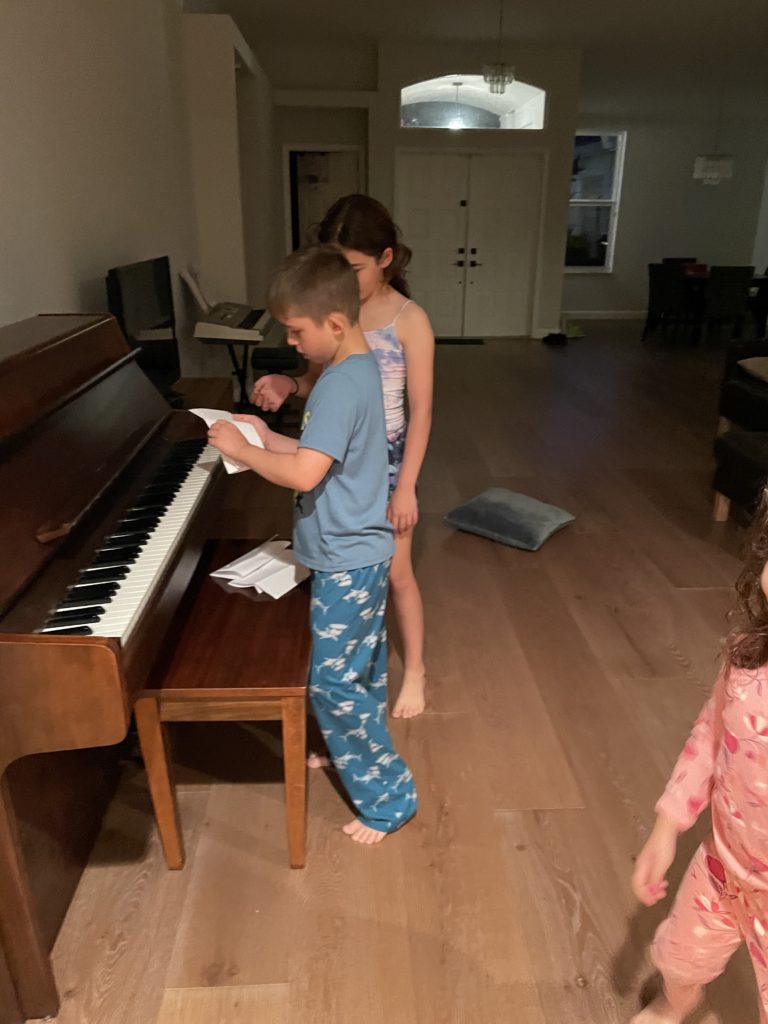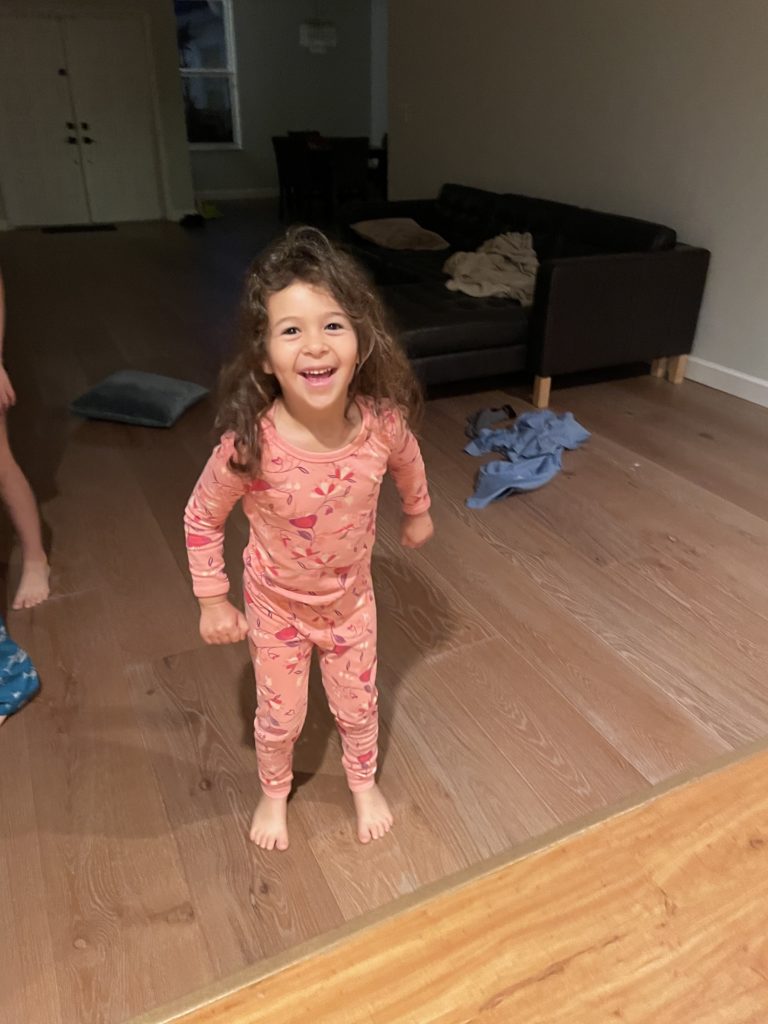I am not currently experiencing burnout.
I am grateful for this. I do think I have been there or at least burnout-adjacent in the past (figuring out how to deal with PMDD around winter 2019; possibly spring 2022). I was listening to a podcast this morning (this one: Beyond the To Do List: Chris Bailey on How a Calm Mind Increases Productivity) and learned two things about burnout that are not new — but were new to me.
FIRST: Maslach, of Maslach’s Burnout Inventory, a commonly referenced scale in the physician wellness world (and I’m sure many others)? Maslach is Christina Maslach. A woman! Due to my own patriarchal influences, I had long assumed otherwise. Dr. Christina Maslach is still on faculty at Berkeley. Now I want to delve into her original work.
SECOND: I learned about the 6 factors that can increase risk of burnout, and every single of them made complete sense. I had heard them vaguely before, but not for a while and it just hit me how a) medicine is really primed to facilitate burnout and b) why women are even more at risk. Here are Dr. Maslach’s 6 factors:
WORKLOAD: This is clearly an issue in medicine, especially as staff shortages worsen. Likely worse in various pockets and specialties where shortage are more pronounced. In my specialty, booking >6m out is common. Larger entities are financially motivated to push providers right to the brink of what is tolerable especially as operational costs increase.
Woman also often have a whole pile of ‘workload’ waiting for them at home that disproportionally falls to them. So, double whammy . . . even if your charts are done, the kid admin/cleanup may not be so the overall workload is too high. Personally, I am very lucky in this realm. I feel my workload is manageable in the clinical world, and have someone else doing a good portion of the household work (maybe not the admin, but a lot of the food prep, laundry, and general cleaning up + lots of driving). I know not everyone is able to have this, including those with equally heavy workloads during the day.
CONTROL: Control of the schedule, control of the day, etc. Things like not being able to take a PL day without months of notice can be frustrating — this definitely relates to autonomy and control. Getting “push” notifications (HELLO EPIC CHAT) about non-urgent things is a particularly grating loss of control (to me, anyway!). And call — well, that’s an utter loss of autonomy. (Not saying it’s not necessary or that the work isn’t worthwhile! But it is accepting a temporary loss of autonomy. Call means that you’ve made an agreement to essentially say “yes of course” to anything handed to you during a certain period. And that is hard.)
On an outpatient day, I also can’t control anything about what any patient expects from me — even if what I am recommending is in accordance with guidelines and what they want may not be. Once again, I feel lucky in that most interactions are positive, and that I do not have call all that often. But man – there are plenty of challenges to control in medicine.
(And in parenting. Parenting babies is a huge loss of autonomy and control. It gets gradually better with time, but then morphs/flips into difficult feelings about controlling our kids’ behaviors . . .)
REWARD: Hmm. I can’t complain in the tangible compensation realm. But sometimes I do not feel like what I do gets noticed in any way shape or form. For example, call is a TON of emotional labor. It would be awesome to have someone say at the end — “awesome job. That was really hard, but you did it.” (I do often get that from you guys, which is amazing – but what about those who don’t have blogs?).
I think most medical systems and practices could do more to acknowledge periods of hard work and accomplishment across the board. There are some things happening here, but there could be more.
And at least traditionally, this can be a major struggle on the home front, too.
COMMUNITY: I am happy to say that I truly like my colleagues! I enjoy working with basically everyone at our office and have many colleagues I can truly call friends. There have historically been some spaces where I feel less comfortable/welcome, in part because I am female and on what is probably considered a ‘lower tier’ specialty (less competitive, lower paying, non-procedural).
This is again where I think women with young children struggle. Between pumping and having to rush home and generally being exhausted, it can be harder to make new connections. Early motherhood can be so isolating.
FAIRNESS: So even though I have to acknowledge that physicians are compensated pretty well, the discrepancies between men and women are well-known, and they sting. Also, as a lower paid specialty sometimes I have to wonder – why is what I do over 3x less valuable than that of, say, an orthopedic surgeon when the training took almost as long (admittedly, it was less intense). Why are pediatric subspecialists paid so much less than their adult counterparts?
(On the home front, fairness issues are obvious — see Eve Rodsky’s aptly named book!)
VALUES: Well. This one is tough. But I will say there are certain things I do at work that feel more aligned with values than others. Sometimes what parents or patients want and what is safe/responsible/evidence-based are not in sync, and it can feel like a losing proposition because trying to practice safe and responsible medicine + fulfilling patient/family desires can be at odds. Not to get into specifics, but some days I have come home feeling like I didn’t do much that felt truly good. Those days can feel demoralizing.
At home, values come into play as well as we make all kinds of choices for our own kids and often question them along the way.
All this is not to say “woe is me” (AT ALL) or even “woe is being a woman in medicine.” First of all, I feel very lucky that many of the above do not apply to me currently (or if they do, to an acceptable/minimal extent). Second, I want to acknowledge that this is not unique to medicine or even health care overall. I think MANY career paths and lifestyles probably invoke similar challenges — it’s just that being a mother and a physician is the particular path I have taken, and the lens through which I see these 6 factors coming into play. A similar list could probably be adapted to those who are teachers, those who work in tech, those in other corporate environments, and really an infinite number of other things.
At least in identifying these factors, maybe I (we) can get ahead of things if burnout rears its ugly head again.
And, in completely unrelated news (and characteristic theshubox fashion), here are some V-day pix!! We had a fantastic treasure hunt this morning — a tradition passed on from my dad that will hopefully continue across generations 🙂



The prize was (as always) boxes of See’s candies. The hiding place this year was the oven.

22 Comments
I may have gotten the recommendation from you, but I want to recommend Dr. Cassie Holmes Happier Hour. She’s a UCLA marketing/business professor who focuses on the study of happiness. While she’s not the only one in this space, I really liked what she covered in her Beyond the To-Do List appearance so I reserved her book from my local library.
She focuses on how to address the feeling of being time poor. For me, I really needed it b/c I was struggling with a new-to-me commute of 2 hours/day three days a week. When I spoke about it to a friend, she instantly reserved it as she’s struggling with the feeling due to newish baby, return from mat leave, etc. Dr. Holmes recommends a few lifestyle mods (adequate exercise and sleep) and the benefits of both for expanding one’s sense of time. Now, I’m in the “Define your why” and “Timeblocking” sections that are meant to help clarify motivations and reframing approaches to the time I do have. While there are exercises in the book that I think will be helpful, I’m waiting until after a conference/add-on vacation next week since time-blocking during that time won’t apply to my goal of improving my everyday life.
Anyway, kind of burnout adjacent but I’ve really been impressed. I don’t think this is new material necessarily, but maybe it’s just presented in a way and at the right time in my life that resonate for me.
I have her book in my to be read stack! I don’t remember if that’s where I heard her but it might have been and I was so impressed I ordered it as soon as the episode ended!
I second Tierney’s recommendation for Happier Hour. I agree that the information may not be new, but it is presented in a way that I haven’t seen before (very researched based, as she is a professor and teaches the material as a course). I purchased a copy and have loaned and recommended it to several working mom friends.
I’ve rec’d it here as well. It Covers a lot of the same ground as Laura’s tranquility by Tuesday but backed by much more research That accounts for a larger segment of the population
I interviewed Cassie Holmes for my podcast, How to Be a Better Person. Also, Ashley Whillans who wrote Time Smart (she’s at Harvard), and I learned a ton and got a lot of inspiration from both these women!
Here’s a link to the Cassie Holmes interview: https://pod.link/1478203951/episode/7af582b07a64fcb5b69eb7e3bf5cd78b
And Ashley Whillans: https://pod.link/1478203951/episode/f7cdd01c1a442432d5f1804282c59df7
Cheers!
awesome kate! Enjoying Cassie’s book now!!!
That’s really interesting. I’m a uni lecturer and I find the individual nature of the work gratifying, I work on my own stuff, teach my own classes, but also really lonely. Our department is pretty decentralised so there’s not a clear place to go with a problem or to share a victory. It can also be emotional, with attempts to meet student needs, which is definitely gendered. I will never forget telling a male colleague “ugh, I hate it when they cry…” and him being shocked that people cry to me… Workload is a major issue, the work never seems done and the reward for winning the pie eating contest seems to be more pie.
I remember being trained in the burnout research as an attorney with a high volume caseload in child protection. As I recall, once you get to the actual burnout stage, it is irreversible. I reached that stage after 19 years. I took a year off, then tried to go back. Within just a couple of months, I was right back in that same permanently burned out zone. I do wonder if I could have averted burnout earlier. It may just be inevitable with that work.
Details on the scavenger hunt? Would love to hear!!
I’ve seen mentions of scavenger hunts elsewhere, but ours is a treasure hunt! I did 6 clues. Each clue leads to the next and I designate a specific kid for each clue (ie, the first paper said “Genevieve, go to where you go to get STRONG” and the next clue was by the weights. The last one led to the treasure 🙂 G can’t read yet so A/C read her the clues with her name!
The biggest contributors to burnout for are 1) dread that every time I have a difficult conversation with someone that I’m going to have a punitive conversation with my boss that does not take my perspective into account, and 2) every time I take care of a challenging patient and have to customize an anesthesia plan I dread having people argue with me, rolling their eyes, heavy sighing or just generally being jerky. Which could lead to #1. Honestly I spend about 1/2 my clinical time wanting to quit.
I feel like #1 speaks to autonomy and #2 speaks to values. And both hugely impacted by fairness of how people see you based on factors beyond your control . . .
So fascinating about burnout, and makes so much sense. As a clinical neuropsychologist I have worked clinically in an inpatient hospital setting and now work full time in academic research, and I find the latter so much better from a mental health perspective because even though both have very high workloads, in academia I have almost total control of my time, more community (I lead a lovely lab), and reward (my achievements are recognised- both internally and by the general community). I also think I’m reasonably compensated at my stage of mid-career, though many colleagues disagree when compared to the private sector. The main challenge of working in research is the reliance on grant funding to continue our work, which DOES lead to bitterness/burnout because that’s an area where control is taken away and it does not feel fair. Anyway, just the perspective of another field 🙂
This is interesting! I’ve had a couple of conversations about burnout recently because I will be experiencing a big shift at work this spring when my colleague/mentor retires. They mentioned burnout to me as they fear too much will fall on my plate. So far I have not felt burnout in my career but it’s something I want to be mindful of and I’ve had to learn how to set boundaries which is tough to do at times and makes me feel guilty – like saying I can only travel once/month.
I have felt a sense of burnout in certain stages of parenting, though… but burnout is probably not the right term? It’s a lack of margin or reserves of patience that get depleted.
Those six factors are interesting, I hadn’t seen them before, and they definitely help explain why so many educators are facing burnout and leaving the profession. I’m not a teacher myself but I work to support them and see that almost all of these factors pertain to teachers with increased demands, mandates, and micromanagement leading to a loss of control. And so many teachers feel like they’re forced to do what is not best for kids, really compromising their values. My office job doesn’t provide the same feeling of meaning, but I love having a decent amount of control over my day and the flexibility to take time off when I want to, within reason.
yes totally could see how teaching would be a very high risk profession for burnout – so many on this list could apply.
I don’t know if you’ve seen this study before, but to your point about gender, workload and fairness, female physicians receive significantly more messages from both patients (26% more, or 51/month! ergh!) and from staff via the EHR. (https://pubmed.ncbi.nlm.nih.gov/34993875/)
I know that I oscillate between encouraging patients to use our portal, because hold times can be up to an hour when they call the call center and I’m tired of fielding complaints about something so far out of my control, and a feeling of absolute dread and refusal every time I open the portal message folder to see 10+ new messages, which happens multiple times per day. I would love to hear how you manage your time and your motivation around recurrent, ‘forced’ tasks like this.
How timely that JUST NOW I got a note from my employer with the subject “Addressing Increase in Patient MyChart Messaging and Its Impact on Our Clinicians.” Looks like they are looking at a variety of solutions, including potentially allowing clinicians to bill if messages meet certain criteria. They also have a ‘basket optimization initiative’ and are working on other resources. I don’t have solutions for anyone but I’m heartened that my employer (Big Academic Medical Center in the mid-Atlantic) is at least aware of the addition burden that this is adding.
I joked that we should be able to bill DIRECTLY (ie, patient $ –> my bank account) or else the institution might actually encourage MORE messaging as a revenue stream . . . the horror!
Ha – valid point!!! But if they really did start to consider messages as a revenue stream then one would THINK that would also allow for the hiring of more people to help manage it…though that seems awfully logical so perhaps not at all realistic =)
[…] Are you familiar with Maslach’s Burnout Inventory and the six contributing factors? Pediatric endocrinologist Dr. Sarah Hart-Unger opens The SHU Box and shares her Thoughts on Burnout (from a Non Burned Out Place). […]
I notice that in corporate recognition efforts, most of the kudos go to nurses, medical assistants, janitors, etc., and very rarely go to doctors. Why? I think maybe because everyone just expects us to always give 100% all the time, because we always do anyway, so no one notices.